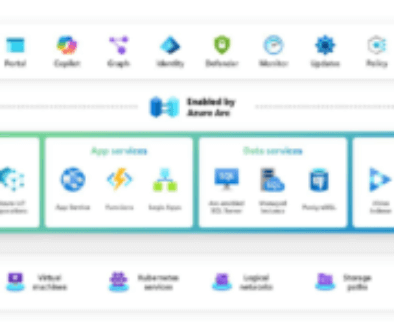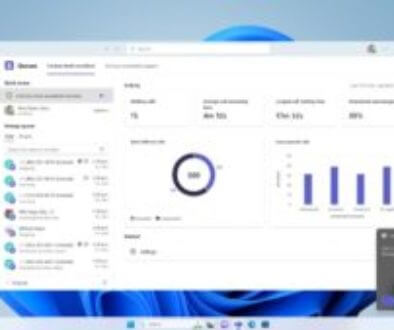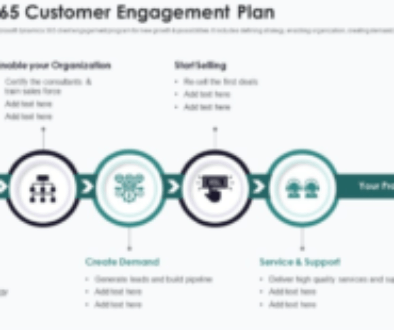Prior to cloud, on-site storage was the only option for most companies. However, times are changing, with many companies adopting a " cloud-first" attitude.
According to a survey of 196 IT managers, 79% are now engaged in projects cloud. In addition, 58% of users of a cloud -based system report that they are providing real business value.
Make no mistake, on-premises solutions do serve a purpose. They secure corporate data and applications on-premises and give companies the ability to maintain full control of their IT environment.
However, there are some major drawbacks that limit business innovation:
- Lack of scalability. On-premises storage can hinder your business growth due to a lack of scalability. Upgrades typically require software and hardware changes. This is a slow and difficult process that takes up a lot of your IT department's time that could be better spent elsewhere.
- Too expensive. On-premise systems have a significant initial installation cost. In addition, companies need dedicated IT teams to take care of their systems and reduce downtime. They also need a separate infrastructure for backup and disaster recovery, which takes a lot of time and money to implement.
- Security Risks. In addition to the usual risk of cyberattack, when you have physical servers, you take on "real" risks, including damage, destruction, natural disasters, fire, water damage, or simply "wear and tear" of the hardware.
- Staffing requirements. An on-premises storage setup requires IT administrators or support teams to manage their local server and local network. With cloud, you don't need the same level of available support staff.
In our humble opinion, when it comes to cloud, it doesn't get much better than Microsoft Azure. After all, its cloud -based services are specifically designed for enterprises. Organizations have the option of going full cloud or following a hybrid approach, with a gradual transition from on-premises to cloud.
Here are five reasons why you should choose cloud and switch to Azure.
1. It's much faster than on-site solutions
When it comes to speed of deployment and speed of scalability, Azure is well ahead of on-premise.
With an on-premise solution, if you want to expand operations or optimize workloads, you need new hardware, software upgrades and a team to implement them. Of course, this also assumes you have sufficient cooling, power and physical storage capacity.
With Azure, you can use services like Azure AutoScale to dynamically adapt applications to your changing demands. This allows you to automatically scale up and down based on any metric. For example, if you expect your traffic to skyrocket in a week, you can tell it to add 10 times as many virtual machines ahead of time to handle the load.
Whatever your needs, Azure can be upgraded in a matter of moments to meet your business requirements. This makes it much more adaptable and efficient than on-premise solutions.
2. Azure VM makes you more productive and agile
One of the most powerful features ofAzure is Azure VM (virtual machines). It allows you to create your own custom virtual machines in seconds by defining an operating system, language and workload. This is something that is not possible on site, as you need multiple machines for multiple operating systems.
This allows your companies to experiment more. By working on different virtual machines, you can test, develop and get feedback faster. It offers more flexibility because your teams can do more with their machines. The ability to switch between Linux or Windows on the same machine, with a different set of tools and applications, is a powerful feature for employees.
3. Azure is less expensive than on-site solutions
This is one of the biggest concerns for companies, the ultimate question: does investing in cloud solutions make financial sense for your company?
In most cases, this is the case and with a good margin too. With Azure, you don't have to invest in new machines, infrastructure or replace aging servers. Nor do you need to make room for infrastructure and servers.
Azure, offers flexible spending, which means:
- You pay according to your needs.
- You pay more to get more.
- You save on energy, space and cooling costs.
Plus, you can be sure of your recurring costs because Microsoft charges per user for its services cloud Azure .
4. Azure is more secure than on-premise solutions
For many companies, security is the main reason they want to stay onsite. With locally hosted data, some people believe they have better data security compared to storage based on cloud.
But that's just a myth. Services like Azure Active Directory are another advantage ofAzure over on-premises storage solutions.
Active Directory is a shared identity and directory management service based on cloud. It allows IT administrators to give employees single sign-on (SSO) access to several cloud SaaS applications such as SharePoint , Office 365 etc.
In addition, it offers a comprehensive suite of identity management services that includes:
- Registration of the device.
- Multi-factor authentication.
- Role-based access control.
- Self-service group management.
- Tracking of application usage.
These services ensure your company's security, guaranteeing that only the appropriate users have access to your most sensitive information.
Not only that, but by rejecting physical servers for cloud, you also eliminate the physical security risk because you don't have on-site servers to manage in your building. Between that and your virtual security, Azure helps secure your business on two fronts.
5. Azure is not only storage, it is a business tool
Azure is not just easy access to data, security and storage based on cloud - it offers much more to organizations. It offers a complete delivery pipeline to organizations, which includes:
- Source control
- Unit tests
- Integration tests
- Delivery
- Online tools and applications
Azure is recommended not only because it is popular, but also because it makes sense for your business. It has better security features and offers superior speed, reliability and scalability compared to on-premise solutions. Not only that, but it's also less expensive.
You don't even have to worry about maintenance. Microsoft takes care of everything: infrastructure Azure, security, physical servers, patches, redundancy and updates.
If you are not comfortable making a full commitment to cloud, there are also hybrid options. This is a combination of cloud and on-premises storage. Microsoft manages this for you as well, offering synchronization tools to create a bridge between on-premises and Azure.
So, would you choose Azure or On-Premise?
We realize that this is an important decision for businesses and should not be taken lightly. Every business has different needs, but don't let that make you complacent. You may think your current on-premise solution is working, so why would you change it?
This "it's not broken, so don't fix it" attitude is understandable. But these days, when it comes to your company's IT, it's better to be proactive than reactive. The security of your business data is especially involved.
Want to know more? Make an appointment with one of our specialists.
Let's go further together!
When challenges are difficult to handle internally, it is best to call in a specialist. An external assessment can be of great help. It will be able to guide you in the realisation of your project and give you recommendations.



